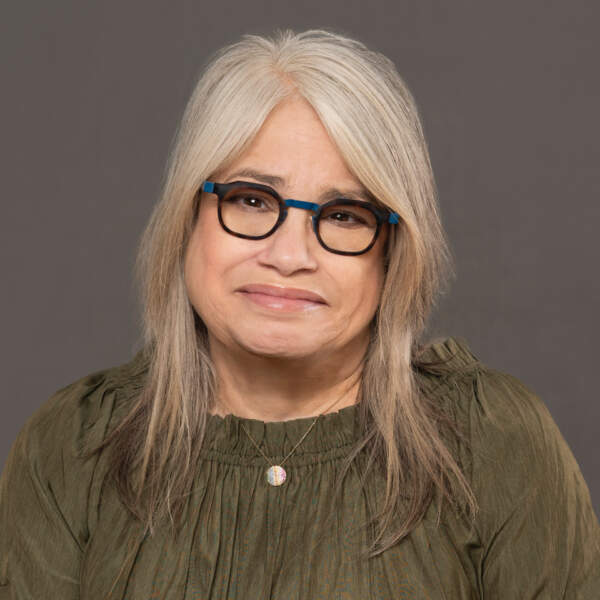Advertisement
Living In Translation

My grandparents, who were among the wave of Cuban refugees that came to the United States in the mid-1960s, never felt malleable enough to learn English. “No eshpeake Engleesh” was their standard retort. This set of circumstances not only made me bilingual, but also designated me as their official translator. With no English, my grandparents were essentially isolated in America.
A person’s native language is love and memory. It is comfort and familiarity. It is bedrock identity. I thought about that when I read a recent article in The Washington Post with the headline: “Nearly Half of White Republicans Say It Bothers Them to Hear People Speaking Foreign Languages.” Though not a surprise, it still saddened me.
I often accompanied my grandfather, my Abuelo, on walks around his neighborhood where we ended up at the corner grocery store to buy packs of M&Ms. “Que dice?” What is this person saying? He always asked me that question when we were out in the world. He tried to pronounce some of the English words he overheard, but the consonants crumbled in his mouth. He proudly told anyone he encountered, pointing to me, “Mi nieta es Americana. Eshpeake Engleesh good.”
A person’s native language is love and memory. It is comfort and familiarity. It is bedrock identity.
My grandmother, Abuela, was a homebody who loved American soap operas. In the pre-cable, pre-Univision years when there was no Spanish programming on American television. My grandmother stayed glued to “As the World Turns” and “The Guiding Light,” soap operas that reminded her of the novelitas she had listened to on the radio in Havana. I translated a bit for her, but somehow she understood the intricacies of those shows without me. One character was "malo." Another one was "desafortunado," unlucky. These imaginary friends of hers kept my Abuela company on long and dreary winter afternoons in Connecticut.
The Post article further reported that according to the Pew Research Center, “Forty-seven percent of such Republicans say it would bother them ‘some’ or ‘a lot’ to ‘hear people speak a language other than English in a public place.’ Eighteen percent of white Democrats said they would be similarly bothered.”
The article described two incidents that were part of a pattern of racism towards others. In the first, a United States Border Patrol agent detained two women for speaking Spanish at a gas station in Montana. It turned out the women were U.S. citizens. The second incident happened at a New York deli where a man was enraged when he heard the workers speaking Spanish. He threatened to call immigration officials.
The United States as a country does not have an official language.
The United States as a country does not have an official language. I wish I had known that in the days when Abuelo would pick me up from school. “Ándale!” Hurry up. The kids made fun of us. They called me Spic and Span, and one said, “Your grandpa can’t speak English because he’s so stupid.”
When my children were young, I encouraged them to learn Spanish. My son is now as bilingual as I once was. That bodes well in the United States, which has 41 million native Spanish speakers and 12 million bilinguals. If the trend continues, the United States could very well surpass the number of Spanish speakers in any country by the year 2050.
Another important piece of advice I gave to my kids was to engage in deep, meaningful translation to understand people. The example I gave them was that God happily listens to prayers in more than 70 languages. It’s a metaphor that I plucked from a Jewish commentary on the Bible: God has always been an equal opportunity linguist.
When I think of my Latina heritage, I always paraphrase Winston Churchill, who said he was half-American but wholly English. I too was half-American, yet my childhood was completely Cubana. These days my Spanish is more Spanglish, reflecting how rusty I’ve become. But plunk me down in a Spanish country, and it comes back to me much the way a photograph develops in a darkroom. The language is imprinted in me. And while my Cuban Abuelos were not able to communicate with the American side of my family directly, they always had me to translate for them.
